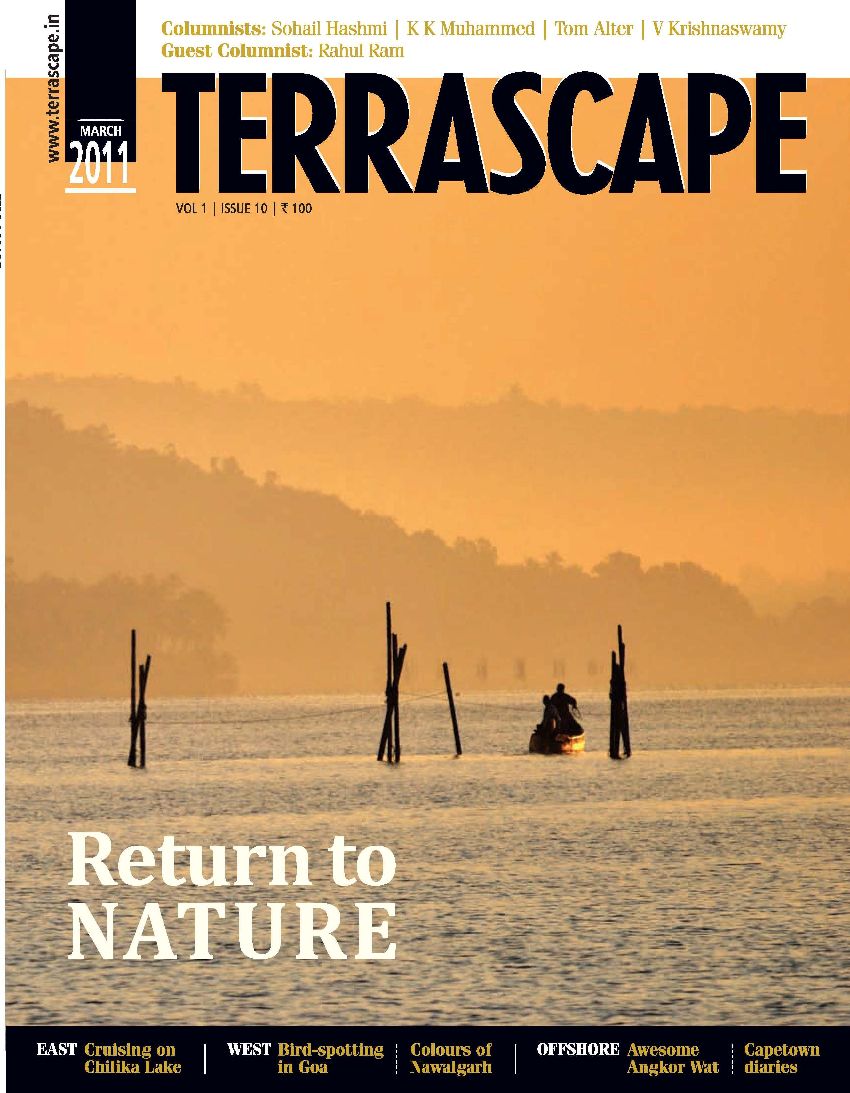/topics/lifestyle
Lifestyle
Jalyatra: Exploring India's traditional water management systems
Posted on 14 May, 2011 07:34 PM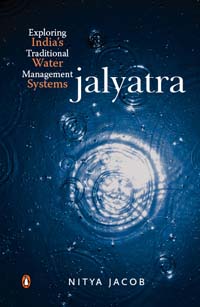 Jalyatra - Exploring India's traditional water management systems, by Nitya Jacob is an ecological travelogue that looks at links between water, society and places It describes in detail what existed, how it fitted into the socio-cultural milieu and was appropriate for the local climate and geography. It then examines reasons for their decline, as indeed most have, in recent decades.
Jalyatra - Exploring India's traditional water management systems, by Nitya Jacob is an ecological travelogue that looks at links between water, society and places It describes in detail what existed, how it fitted into the socio-cultural milieu and was appropriate for the local climate and geography. It then examines reasons for their decline, as indeed most have, in recent decades.
While recording the dismal state of traditional systems, the author stumbles upon small initiatives that have brought about significant transformation across regions. It refers to noisy hidrums and gharaats, the river-run flour mills of Uttaranchal, the technologies whose potential has yet to be fully realised. It looks at water harvesting structures of southern India—the eris and ooranis. However, it admits that the average person is singularly uninterested in protecting the environment.
Jalyatra captures the efforts of NGOs and enlightened individuals striving to revive these systems. It makes the case for a mass movement to revive traditional water management systems, especially village ponds, across the country as the way to ensure water security in India. In Chambal, the author meets Brij Mohan Gujjar, dacoit turned water conservationist, who is doing valuable work on the check dams designed to control the flow of water in the ravines; and in Shillong, Lan Potham shows him the uses of the easily available bamboo to construct the shyngiar which irrigates his areca nut plantation.
Sunderbans - A climate adaptation report by World Wildlife Fund India
Posted on 09 May, 2011 09:23 PM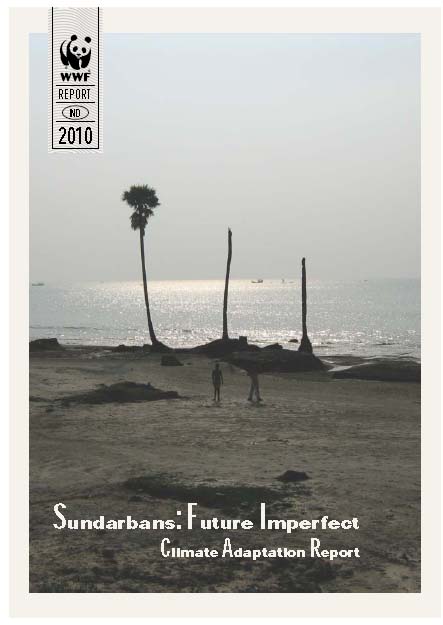 Beginning in 2005, WWF-India has conducted dozens of personal interviews to record how climate change impacts people's lives here and now. These perceptions demanded that s
Beginning in 2005, WWF-India has conducted dozens of personal interviews to record how climate change impacts people's lives here and now. These perceptions demanded that s
Call for entries on Jeevika Asia Documentary Festival 2011 - Centre for Civil Society – Apply by 4th July, 2011
Posted on 09 May, 2011 05:05 PMTaking place in the heartland of India, New Delhi, the 8th JEEVIKA: Asia Livelihood Documentary Festival is a non-profit film showcase promoting films that put livelihood on the live wire! Organised by the Centre for Civil Society, the documentary festival is a part of the larger Livelihood Freedom Campaign ‘JEEVIKA’ which helps develop public policy measures to clear the path for free enterprise.
Role of indigenous knowledge system in conservation of forest resources – A case study of the Aka tribes of Arunachal Pradesh – A paper in the Indian Journal of Traditional Knowledge
Posted on 23 Apr, 2011 09:01 PM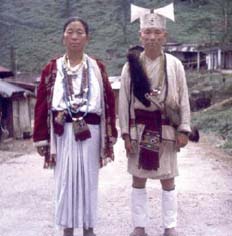 Indigenous knowledge is the basis for local level decision making in agriculture, healthcare, food preparation, education, natural resource management, and a host of other activities in rural communities.
Indigenous knowledge is the basis for local level decision making in agriculture, healthcare, food preparation, education, natural resource management, and a host of other activities in rural communities.
Between the city and the salty sea - The wells of Bhuigaon, Thane, Greater Mumbai - Guest post by MS Gopal
Posted on 22 Apr, 2011 05:57 PMAs the concrete jungle of Greater Mumbai reaches Bhuigaon and overuse of groundwater sucks in the sea water, the traditional wells are under threat.
Traditional fishing techniques of tribes in Bastar region of Chhattisgarh – A paper in the Indian Journal of Traditional Knowledge
Posted on 20 Apr, 2011 07:52 AMTribal habitat and rich primitive culture covers many traditions and fish is an integral part of the tribal food habit since times immemorial in this region. The life of tribes mainly depends on naturally available foods which can rarely be reaped in other places. The fishing techniques are specialized according to structure, size of stream, season and species of fishes intended to be harvested.
Bhisti community in Kolkata usurped by taps - A film from Video Volunteers
Posted on 18 Apr, 2011 12:15 PM
Deep wells and prudence - Towards pragmatic action for addressing groundwater overexploitation in India - A World Bank document (2010)
Posted on 12 Apr, 2011 01:51 AM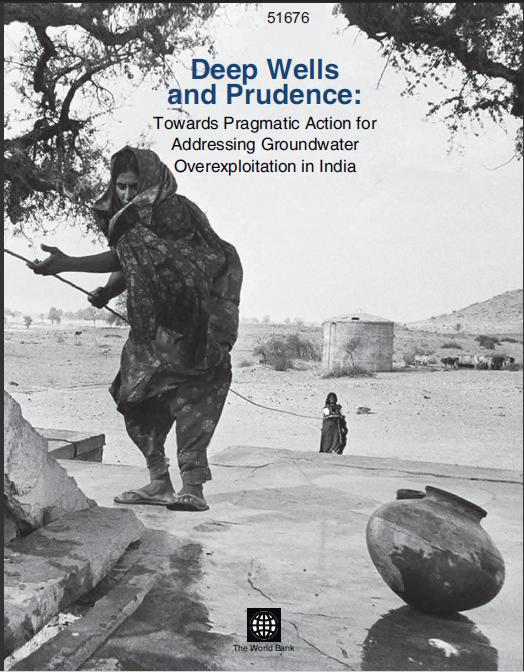 India is the largest user of groundwater resources in the world. It is estimated that approximately 230 cubic kilometers per year is used annually, this is more than a quarter of the total world consumption from this resource.
India is the largest user of groundwater resources in the world. It is estimated that approximately 230 cubic kilometers per year is used annually, this is more than a quarter of the total world consumption from this resource.
It is in this context that this World Bank report looks at the reasons for this quantum of groundwater usage.
The report delves into socio-economic and political reasons and looks at policies which inadvertently promote so much extraction. The report also analyses various attempts to manage this resource. These attempts range from government and international agency efforts directed to grassroots mobilisations. Finally the report comes out with suggestions to deal with this crisis.
Calling entries for 'IDPA Awards for Excellence 2010' – Apply by 15th May, 2011
Posted on 11 Apr, 2011 04:53 PMIndian Documentary Producers' Association (IDPA) is a non-profit organisation that came into being in 1956. It is registered as a public trust under the Bombay Public Trust Act 1950. Today IDPA is India’s single largest association of producers of documentaries, animation films, advertisement films and TV programmes. IDPA has organised film festivals and instituted awards to recognise and reward the talents of Indian short film makers. IDPA is also involved with educational institutions that offer courses in media and communications and would like to reach out to young people entering the profession.






